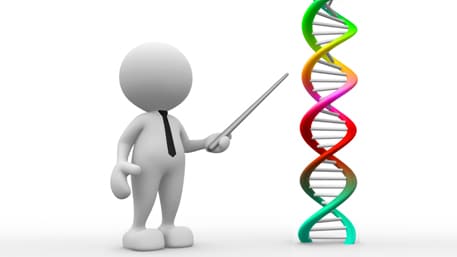odanny
Diamond Member
Turns out the power of positive thinking has real medical benefit, and can alter gene expression, you can literally help heal yourself and help to prevent future occurrence of disease by how you think.
Is there a difference between health and wellness? A doctor treats one, while you are entirely responsible to treat the other.
“Only 5% of disease-related gene mutations are fully deterministic, while 95% can be influenced.”
There are two major types of mutation:
1. Hereditary mutations, that which are inherited from a parent.
2. Acquired mutations, that which are developed during one’s lifetime due to various environmental factors and high stress, especially emotional stress.
Now whether normal-good genes will be switched on or off; or the diseasing-causing mutated genes will be switched on or off – will depend on various factors.
What are Genes?
Our bodies are made up of tissues, tissues are made up of cells. There are around 40 trillion human cells. At the middle of these cells are something like control centres called nucleus. Nucleus normally contains 23 pairs of chromosomes that means, total 46 chromosomes, which are made up of DNA (Deoxyribonucleic acid).
A gene is a stretch or a section of DNA. It is a hereditary unit of DNA, by which genetic information is passed from parent to offspring. There are around 23,000 human genes. We can’t change the genotype but the phenotype is mediated by the choices that we make, especially our thoughts. Genotype is our full hereditary information, it is the set of genes in our DNA which is responsible for a particular trait; whereas phenotype is the physical expression, or characteristics, of that information or that particular trait. We cannot change our physical characteristics, but when it comes to health – Yes!
Factors Determining Gene Expression
Now there are many factors in our environment that determine which genes get expressed. They include the food we eat, the water we drink, the quality of the air we breathe, the amount of sun exposure we have, the amount of sleep we get, whether we exercise, whether we smoke, whether we do drugs, and so forth. These are the tangible factors.
There are quite a few intangible factors as well that alter the activity of our genes. They are our thoughts, our beliefs, our emotions, our stress levels, the quality of our personal relationships, and our social interactions. Earlier these intangible factors were hardly considered important with regard to gene expression.
But now, recent genetic research shows that stress; especially our emotional stress and our thought patterns have great influence on our gene expression. In other words, our mind has got a big role to play whether the so-called good (normal) or bad (disease-causing) genes are switched on or off.
 www.psychologs.com
www.psychologs.com
Is there a difference between health and wellness? A doctor treats one, while you are entirely responsible to treat the other.
“Only 5% of disease-related gene mutations are fully deterministic, while 95% can be influenced.”
There are two major types of mutation:
1. Hereditary mutations, that which are inherited from a parent.
2. Acquired mutations, that which are developed during one’s lifetime due to various environmental factors and high stress, especially emotional stress.
Now whether normal-good genes will be switched on or off; or the diseasing-causing mutated genes will be switched on or off – will depend on various factors.
What are Genes?
Our bodies are made up of tissues, tissues are made up of cells. There are around 40 trillion human cells. At the middle of these cells are something like control centres called nucleus. Nucleus normally contains 23 pairs of chromosomes that means, total 46 chromosomes, which are made up of DNA (Deoxyribonucleic acid).
A gene is a stretch or a section of DNA. It is a hereditary unit of DNA, by which genetic information is passed from parent to offspring. There are around 23,000 human genes. We can’t change the genotype but the phenotype is mediated by the choices that we make, especially our thoughts. Genotype is our full hereditary information, it is the set of genes in our DNA which is responsible for a particular trait; whereas phenotype is the physical expression, or characteristics, of that information or that particular trait. We cannot change our physical characteristics, but when it comes to health – Yes!
Factors Determining Gene Expression
Now there are many factors in our environment that determine which genes get expressed. They include the food we eat, the water we drink, the quality of the air we breathe, the amount of sun exposure we have, the amount of sleep we get, whether we exercise, whether we smoke, whether we do drugs, and so forth. These are the tangible factors.
There are quite a few intangible factors as well that alter the activity of our genes. They are our thoughts, our beliefs, our emotions, our stress levels, the quality of our personal relationships, and our social interactions. Earlier these intangible factors were hardly considered important with regard to gene expression.
But now, recent genetic research shows that stress; especially our emotional stress and our thought patterns have great influence on our gene expression. In other words, our mind has got a big role to play whether the so-called good (normal) or bad (disease-causing) genes are switched on or off.
Mindset and Gene Expression | Psychologs Magazine | Mental Health Magazine | Psychology Magazine | Self-Help Magazine
Mindset and Gene Expression | Health | Psychologs Magazine | Mental Health Magazine | Psychology Magazine | Self-Help Magazine
 www.psychologs.com
www.psychologs.com


